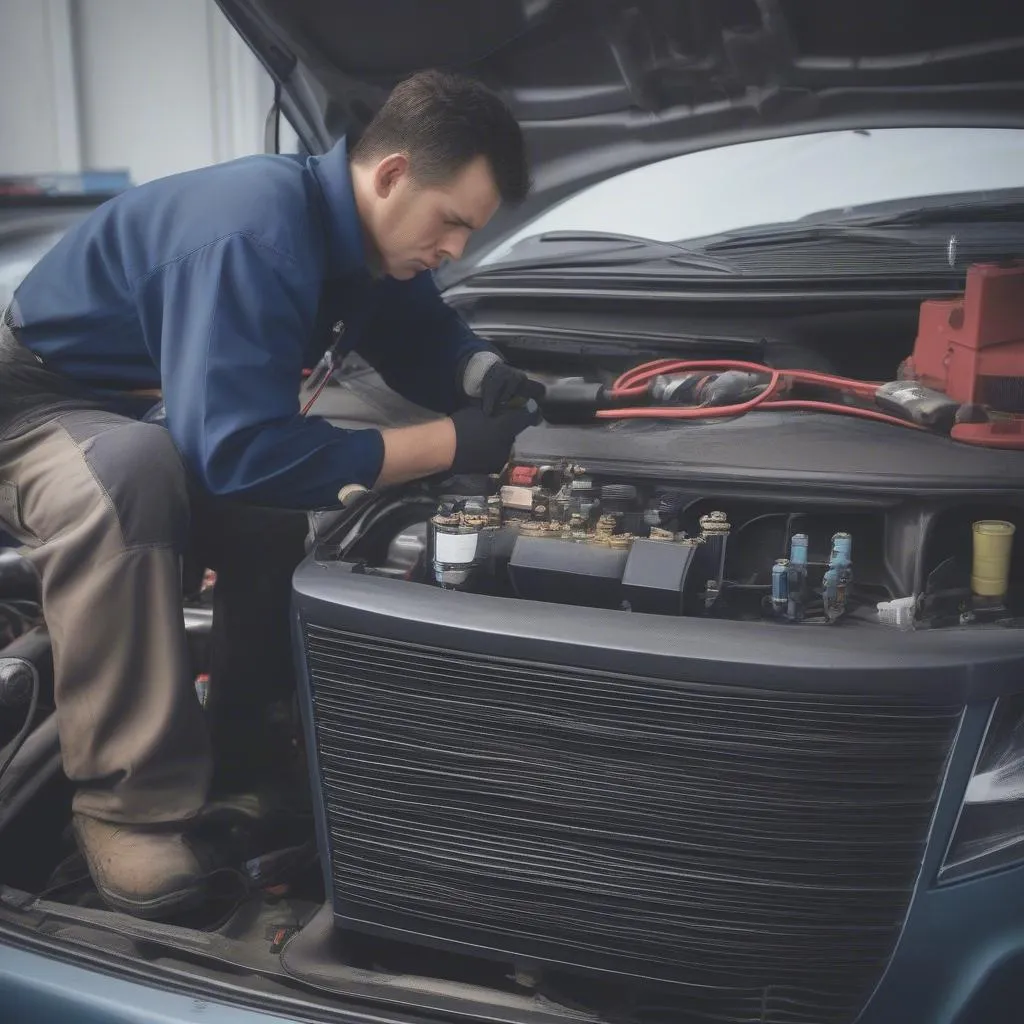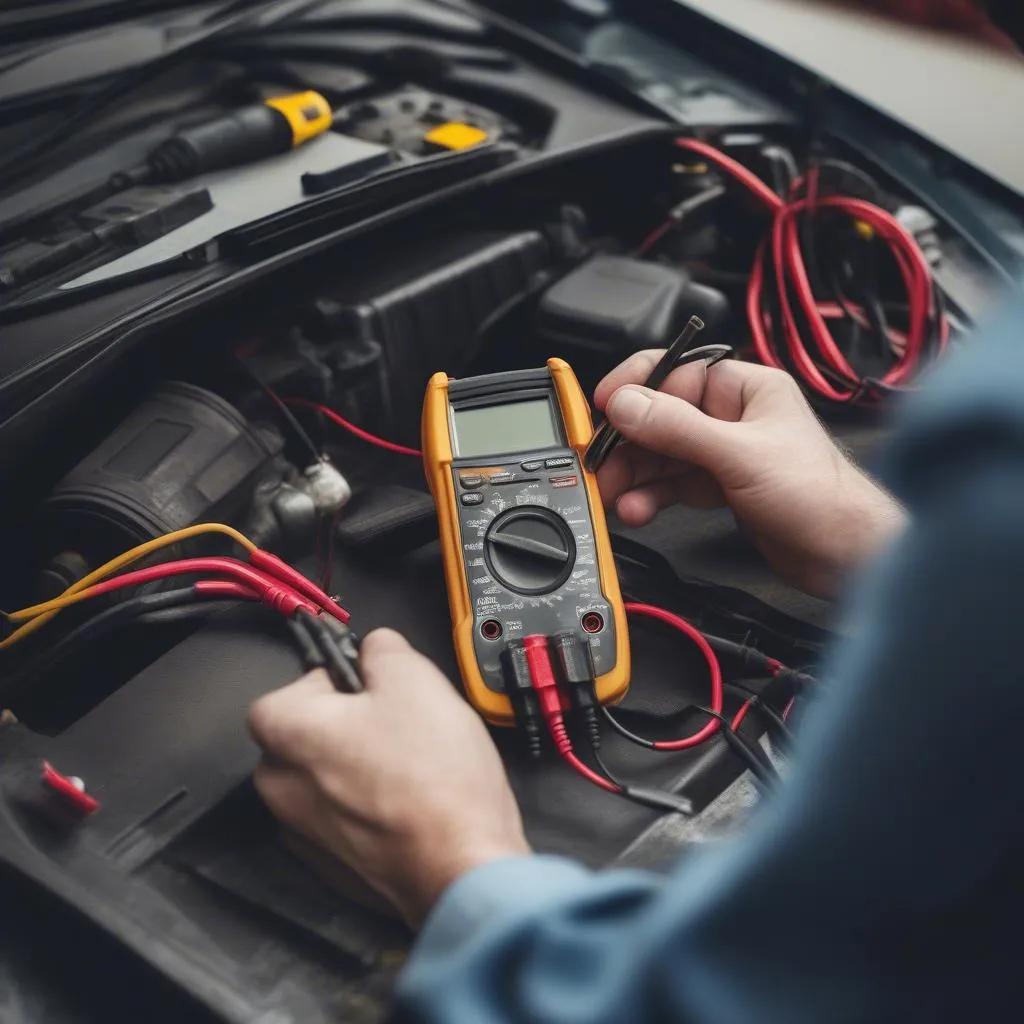Have you ever noticed your car battery dying quickly after using your air conditioning? It’s a frustrating experience, especially on a hot summer day when you need the AC the most. You might find yourself stranded with a dead battery and a sweltering car interior.
This is a common problem, and it’s not always about a faulty battery. In this article, we’ll explore the reasons why your AC might be draining your car battery and how to address the issue.
What Does It Mean When Your AC Drains Your Car Battery?
A car’s AC system, especially in modern vehicles, relies heavily on electrical components. The compressor, fan, and other parts require significant power to function efficiently. The AC system draws power directly from the car battery to operate. If the AC system has an issue, it can draw excessive power from the battery leading to a quick discharge.
The Common Reasons Why Your AC Drains Your Car Battery
1. Faulty AC Compressor
A faulty AC compressor, the heart of your car’s cooling system, can be a major culprit. If the compressor isn’t working properly, it can draw excessive power from the battery, leading to premature battery discharge.
How to identify a faulty AC compressor:
- Listen for unusual noises: A faulty compressor can make grinding or rattling noises, indicating a problem.
- Check for refrigerant leaks: A leak in the AC system can cause the compressor to work harder, leading to excessive battery drain.
2. Weak or Failing Car Battery
A weak or failing car battery is a common cause of sudden battery discharge. If the battery can’t hold a charge effectively, it can easily get drained by the AC system’s high power consumption.
How to identify a weak or failing battery:
- Check the battery terminal connections: Corrosion on the terminals can prevent the battery from charging properly.
- Use a multimeter to check the battery voltage: A healthy battery should read 12.6 volts or higher when fully charged.
3. Electrical Short Circuit
A short circuit in the AC system’s electrical wiring can cause the system to draw excessive power from the battery. This can lead to a rapid battery discharge and even damage to the electrical system.
How to identify an electrical short circuit:
- Look for signs of damage or overheating: Damaged wires, melted insulation, or burnt connectors are all signs of a possible short circuit.
- Inspect the AC system’s fuses: A blown fuse can indicate a short circuit in the system.
4. Overuse of the AC
While using the AC is perfectly normal, excessive use can also contribute to battery drain. If you’re running the AC constantly, especially in hot weather, the battery may not have enough time to recharge properly.
5. Battery Not Charging Properly
The charging system in your car is responsible for keeping your battery topped up. A faulty charging system can lead to insufficient battery charge, which can be exacerbated by using the AC system.
How to identify a faulty charging system:
- Check the alternator’s output: Use a multimeter to check the alternator’s output voltage, which should be between 13.5 and 14.5 volts when the engine is running.
Tips to Prevent AC from Draining Your Battery
- Regularly check your battery terminals: Clean any corrosion to ensure proper electrical connection.
- Have your AC system serviced regularly: Ensure proper refrigerant levels and detect any potential leaks early.
- Consider using a trickle charger: If you frequently park your car for long periods, a trickle charger can help maintain the battery’s charge.
- Use your AC sparingly: Avoid excessive use, especially on short trips or when the engine is not running.
- Avoid leaving your car running with the AC on: If you need to run the AC while the engine is off, use the car’s battery-saving mode or ensure the car is plugged into an external power source.
FAQs about Ac Draining Car Battery
What is the best way to test my car battery?
You can test your car battery using a voltmeter or multimeter. A fully charged battery should read between 12.6 and 13.0 volts.
Can I use a jumper cable to start my car after the AC has drained the battery?
Yes, you can use jumper cables to jump-start your car if the AC has drained the battery. However, this only provides a temporary fix. You should address the underlying issue that is draining your battery to prevent it from happening again.
How often should I service my car’s AC system?
It is recommended to have your car’s AC system serviced every 2-3 years, or as recommended by your car’s manufacturer.
What are the signs of a failing car battery?
Here are some signs of a failing car battery:
- The car starts slowly or struggles to start.
- The headlights are dim.
- The car’s electrical systems are sluggish.
- The battery terminals are corroded.
- The battery emits an unusual smell.
What are the signs of a faulty AC compressor?
Here are some signs of a faulty AC compressor:
- The AC system doesn’t cool properly.
- The AC makes a grinding or rattling noise.
- The AC compressor clutch doesn’t engage.
- The AC refrigerant levels are low.
Need Help Diagnosing Your AC Problems?
If you are experiencing problems with your car’s AC system, it’s essential to have it checked by a qualified mechanic. A skilled mechanic can diagnose the issue and provide the necessary repairs. We recommend contacting a local auto repair shop with experience in European vehicles and AC systems for the best service.
 AC system maintenance
AC system maintenance
 Car battery test
Car battery test
Have any questions? Contact us via WhatsApp at +84767531508. We have experienced auto technicians available 24/7 to assist you with any automotive repair or diagnostics needs. We can also help you with choosing the right diagnostics tools for your European car.
If you’re interested in learning more about maintaining your car’s battery and electrical systems, you might also want to check out these articles:
- Honda Civic Battery Voltage Malfunction OBD
- Coleman 3.5 Watt Trickle Charger With OBD-II
- Does OBD Port Stay On
We hope this article has been helpful in understanding why your AC might be draining your car battery. Don’t forget to share this with your friends and family who might be experiencing the same problem!